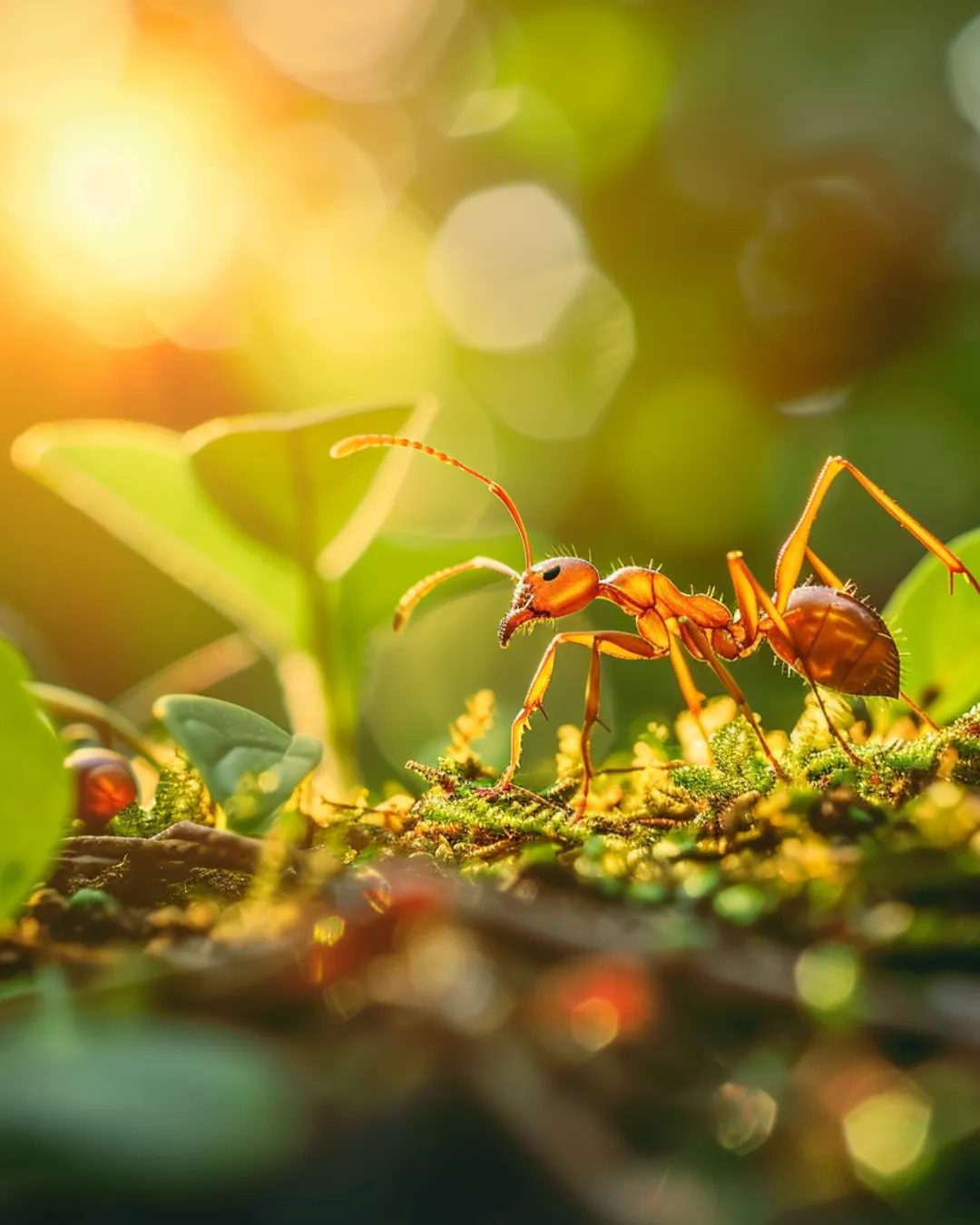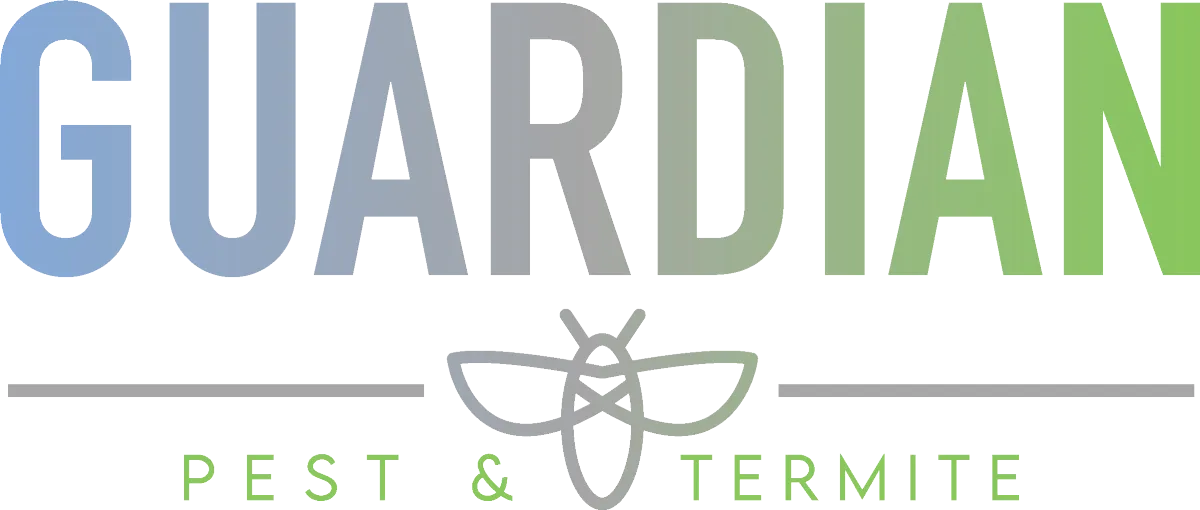Designed to Educate, Motivate & Inspire
The Guardian Journal
Welcome to the Guardian Pest & Termite journal section, your go-to resource for expert insights and tips on pest control solutions. Whether you're dealing with stubborn termites, bothersome rodents, or persistent bed bugs, our journal offers practical advice, preventive measures, and the latest industry updates. Stay informed with our comprehensive guides and learn how to protect your home or business effectively. To learn more contact us, we are here to help you maintain a pest-free environment year-round.

Firework Night, Not Fire Ant Bites: Managing Yard Pests in the Carolinas
Understanding Fire Ants and Other Yard Pests
Fire ants are notorious for their aggressive behavior, especially when their mounds are disturbed. A single sting can be painful, and for some, it may trigger allergic reactions. Alongside fire ants, yards in the Carolinas are also frequented by fleas, ticks, and other pests that thrive in the humid summer climate.
Guardian’s Approach to Managing Yard Pests
At Guardian Pest Control, we understand the importance of maintaining a pest-free yard. Our approach includes:
Annual and Bi-annual Treatments: Depending on your specific needs, we offer flexible treatment plans. Our annual service is perfect for long-lasting protection, while the bi-annual option is suited for yards with higher pest activity.
Targeted Pest Control Methods: We use granular and liquid treatments that are specifically designed to eliminate and prevent fire ants and other common yard pests. These treatments are applied directly to the mounds and other critical areas where pests are active, ensuring effective control.
Environmentally Safe Options: All our treatments are environmentally friendly, safeguarding not only your family and pets but also the local wildlife and ecosystem.
Why Yard Pest Control is Essential
Controlling pests in your yard is about more than just comfort; it’s about safety. Fire ants and other pests can significantly disrupt outdoor activities and pose health risks, especially to children and pets who spend time playing outdoors. Effective pest management enhances your living space and allows everyone to enjoy the outdoors without worry.
Preparing Your Yard for Treatment
To maximize the effectiveness of our services, we recommend the following simple steps before our team arrives:
Remove Clutter: Clear out yard debris such as leaf piles and stacked wood, which can be breeding grounds for pests.
Mow Your Lawn: A freshly mowed lawn provides better access to ant mounds and other hidden pests.
Water Your Lawn: Watering your yard a day before the treatment helps the granular applications penetrate deeper, increasing their effectiveness.
Common Yard Pests in the Carolinas
Here's an overview of some typical pests besides fire ants that you might encounter in your yard:
Mosquitoes
Habits: Thriving in stagnant water, mosquitoes breed in puddles, bird baths, and any moisture-retaining area. They are most active during dawn and dusk.
Concerns: Mosquitoes are notorious for spreading diseases such as West Nile virus, Zika virus, and other mosquito-borne diseases. Their bites can cause skin irritation and allergic reactions.
Ticks
Habits: Ticks are found in tall grass and wooded areas where they wait to attach to passing animals or humans.
Concerns: Ticks are a major concern due to their ability to transmit Lyme disease, Rocky Mountain spotted fever, and other serious illnesses. Quick removal is critical to preventing disease transmission.
Chiggers
Habits: Chiggers, or red mites, are mostly encountered in overgrown grassy and wooded areas during the warmer months.
Concerns: Chigger larvae attach to human skin to feed on liquified cells. Although they don't carry diseases, chiggers cause intense itching and red bumps on the skin, which can lead to secondary infections if scratched.
Grubs
Habits: Grubs are beetle larvae that live underground and feed on grass roots, often causing patches of dead or brown grass in your yard.
Concerns: Aside from damaging lawns, grubs attract other wildlife, such as raccoons and birds, who dig up the lawn to feed on them, causing further damage.
Landscaping Tips to Minimize Pest Infestation
Here are some effective landscaping tips that can help minimize the likelihood of pest infestations in your outdoor spaces:
Proper Plant Spacing
Advice: Ensure that plants are spaced appropriately according to their mature size. Overcrowding plants can create a moist, shaded environment that many pests find attractive. Proper spacing helps promote air circulation and reduces the humidity around plants, making the environment less inviting for pests.
Use of Pest-Resistant Plants
Advice: Incorporate pest-resistant plant varieties into your garden. Many herbs, such as lavender, rosemary, and mint, are known for their natural ability to repel insects. Additionally, consult with local nurseries to find out which plants are less susceptible to pest problems in your area.
Mulching
Advice: Apply mulch sparingly and keep it a few inches away from plant stems and tree trunks. While mulch can help retain soil moisture and suppress weeds, excessive or improperly placed mulch can attract pests like termites and provide an ideal breeding ground for pests.
Regular Pruning
Advice: Keep shrubs and trees well-pruned. Remove any dead branches and leaves that can harbor pests or disease. Pruning also helps to let in sunlight and reduce the moist conditions that pests favor.
Eliminate Standing Water
Advice: Standing water is a breeding ground for mosquitoes and other pests. Ensure that your landscaping design provides proper drainage. Clear gutters, fix leaky faucets, and adjust sprinkler systems to prevent water from pooling. Containers that hold water, such as bird baths or decorative pots, should be emptied and cleaned regularly.
Choosing the Right Fertilizers
Advice: Use the appropriate type and amount of fertilizer for your plants. Over-fertilized or poorly fertilized plants are more susceptible to pest infestations because they may produce excess foliage or weakened tissues that pests can easily attack.
Ground Cover Choices
Advice: Select ground cover wisely. Some types of ground cover, especially those that are dense and fast-growing, can provide pests with shelter and a place to breed. Opt for ground covers that are less appealing to pests and consider the use of inorganic materials like rocks or gravel in high-problem areas.
What to Expect During Your Service Visit
Our certified technicians will conduct a thorough inspection of your yard to identify all pest hotspots. After the assessment, they will apply the appropriate treatments to targeted areas, ensuring comprehensive coverage. We are committed to minimal disruption, and our quick yet effective service allows you to use your yard shortly after the treatment.
For more personalized advice and professional pest control solutions that complement your landscaping efforts, visit Guardian Pest Control at [https://www.guardianpestsc.com/]. Let us help you enjoy your outdoor environment to the fullest, without the worry of unwanted pests.
Fort Mill SC Pest Control Journal
Copyright 2024. All Right Reserved.

